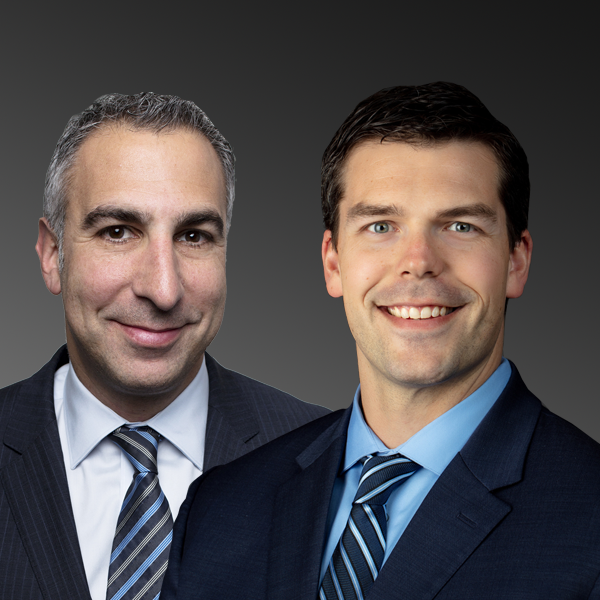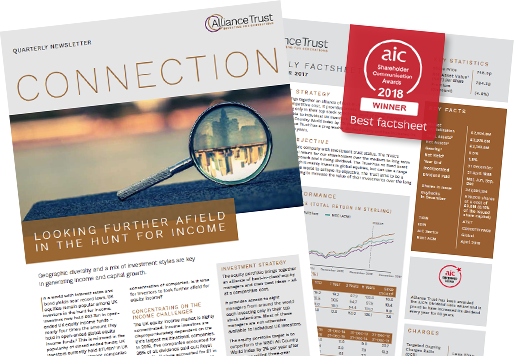Investing long term is a good policy but sometimes the time is right to sell a stock. Alliance Trust Stock Pickers explain why they have done just that over the past year.
There is often concern when there is high turnover of stocks in a portfolio investing for long-term returns and a fear that it reflects a poor choice initially and a possible loss on sale. That may be true, as even the best Stock Pickers can make mistakes. But there are invariably good reasons why companies are sold and new ones bought in their stead. Stock turnover can be good at the right time. In this article we look at some examples of what stocks the Alliance Trust Stock Pickers have turned over and why – and what Stock Pickers the manager has turned over and why!
TURNOVER STATISTICS
To give an idea of how much movement there is within the overall Alliance Trust portfolio, 65.7% of the portfolio was subject to change in 2021 compared with 77.3% in 2020 which was significantly up from 52.3% in 2019 and 60% in 2018. While as we will see there have been some Stock Picker changes, there have also been some higher volatility periods in the market not seen since 2020, with COVID-19, inflationary pressures and the war in Ukraine. Higher volatility often means more opportunities arising for managers as stocks get unfairly penalised in sentiment driven markets.
Meanwhile H1 turnover 2022 was 32.7% of the portfolio.
If those figures seem high, think of the highly unusual market conditions we’ve been living through the last few years, from the roller coaster ride through Covid 19 to rampant inflation fears of recession.
It’s certainly not been plain sailing. Navigation skills have been required.
Specific examples of outright sales and buys year to date at in the Alliance Trust portfolio include LAM Research, Walt Disney, Lukoil, Rosneft Oil, Sanofi, Crown Holdings, which have all be sold, and ITC Limited, Total Energies, Recruit Holdings, Continental, Kyndryl, Ashtead, Danaher, Global Payments and Cloudflare which were new positions.
SOME SALES THAT REMAIN IN THE PORTFOLIO
It is interesting to look at how the individual fund managers bought and sold stocks in their portfolio selections in the last year. On occasions a manager may have exited a stock holding in their own list and yet it remains in the overall Alliance Trust portfolio because it is still held by another Stock Picker.
For example, GQG sold ASML Holding, the supplier to the semi-conductor industry, but it is still in the portfolio because it is held still by Sands Capital. Similarly, Charter Communications was sold by GQG but is still in the overall portfolio held by Veritas. And Heineken was sold by Sustainable Growth Advisers (SGA) but is still in the Alliance Trust portfolio held by GQG.
For investors querying stock turnover it is helpful to know why a stock is sold. So, for example, GQG sold ASML Holding in January, along with Charter Communications and LAM Research in March as the manager felt there were better risk adjusted opportunities elsewhere across the portfolio. GQG rotated its portfolio out of technology names towards energy as it feels this is where growth opportunities lie now.
SGA sold Heineken to replace it with what it saw as a more attractively valued growth opportunity in Recruit Holdings.
Rob Rohn, co-founding principal for SGA, explains: “Recruit owns leading job search engine Indeed.com as well as a variety of other online media and staffing businesses. Indeed, benefits from a dominant market share in the mass-market job search field and has established a reputation for reliability with employers leading to repeat customers and recurring revenues. Our research indicates a strong runway for growth in the online hiring market, and the ability of the firm to gain market share in its Media & Solutions business.”
OTHER TURNOVERS
SGA in February bought Danaher and MercadoLibre selling PayPal and Meta Platforms in their place. However, Mercadolibre was not a new stock for the Alliance Trust portfolio as, it was already held by Sands and Meta is held in the overall portfolio by Veritas.
Danaher manufactures and sells scientific instruments and consumables used for testing/manufacturing across multiple industries.
Fraise says: “Danaher benefits from secular trends such as increased testing of food and drugs from increased regulation, increased demand for biological manufacturing, and increased investments into life sciences research.
“MercadoLibre, the leading e-commerce marketplace in Latin America and a leader in the region’s nascent FinTech industry benefits from secular growth trends such as rising e-commerce penetration and digital payments. We have high conviction in MercadoLibre’s growth opportunity and their ability to execute.”
Individually, SGA also sold Disney and bought Intuit, the tax preparation and accounting software leader, seeing it as a more attractively valued growth opportunity.
“Intuit serves a broad, interconnected ecosystem of customers, accountants, financial institutions, and government entities who trust their products to manage highly sensitive financial information. As a result of its strong reputation, high switching costs, and its efforts to shift a majority of its SMB accounting clients to recurring online subscriptions, Intuit enjoys a highly recurring revenue stream while secular trends such as a shift toward DIY tax preparation supports a long-term growth opportunity,” says Rohn.
GQG Partners sold Lukoil and Rosneft Oil in February and invested in other opportunities - ITC Limited, Visa Inc and Total Energies.
Rajiv Jain, chief investment officer at GQG says: “ITC is a tobacco company with a portfolio of other businesses including packaged foods and personal care products. The company is based in India. We like the visibility and profitability of the cigarette business since there is little innovation required. In addition, we believe that the tobacco industry has strong pricing power to combat an inflationary environment.”
“Visa operates a transaction processing network that enables the authorization, clearing and settlement of payments among consumers, businesses and financial institutions. The company is based in California. We are optimistic on the recovery of consumer spending, particularly cross-border activity, as the pandemic wanes and leisure travel normalizes. In addition, since Visa’s revenue is driven by the dollar amount of transaction volume, we think this business may act as an inflation hedge.”
Total is an oil and gas producer with additional operations in liquefied natural gas (LNG), renewable energy sources, refining and petrochemicals. The company is headquartered in France.
Jain says: “We believe that Total has a strong management team and operates with one of the industry’s lowest breakeven cost structures. We expect Europe to pivot away from Russia as a supplier of natural gas in the wake of Russia’s invasion of Ukraine and think that Total is well-positioned to facilitate that transition with its LNG assets.”
Jupiter Asset Management bought Intel in December last year. Ben Whitmore, head of strategy at Jupiter says: “The business is the largest designer and manufacture of semi-conductors in the world. However, it has lost its technology leadership to TSMC over the last few years and competitors are taking market share. The new management are having to invest with the aim of regaining and then over-taking TSMC. This is depressing profits and causing people to rightly question the future. The shares trade on a Graham and Dodd PE2 of c.12x (interestingly slightly lower than Shell). This seems to us that the worries are reasonably reflected in the valuation and a recovery not.
Then this March Jupiter switched its holding in Nokia into Continental.
Whitmore says: “Over the last two years Nokia shares have performed well under new management. The shares are fairly valued. However, Continental has performed poorly due to worries over the automotive industry and raw material pressures. The balance sheet is strong. The shares are now on a Graham and Dodd PE of just over 6x. To put this in context the long run average US stock market is approximately 18x and the current rating is 36x.”
Finally in April, Jupiter took the opportunity to purchase Kyndryl, the newly renamed IT services company spun out of IBM.
“The shares trade on 2x ebitda and are the most lowly rated IT services company of a material size in the world when measured using price to sales,” says Whitmore.
IN AND OUT... AND IN AND OUT AGAIN
It may seem odd to buy in and out and in again, to some stocks but there is method in the madness.
Metropolis sold Ashtead in October 2021 only to buy it again this January.
Jonathan Mills, co-portfolio manager explains:
“We exited this position in October 2021 to accommodate a new position in Hargreaves Lansdown which offered a much higher margin of safety. Due to recent price weakness, we have been able to rebuild the position in Ashtead at levels 16-18% below the October exit price.”
To accommodate Ashtead, Mills sold Sanofi, which he says held up well during January and is trading close to his assessment of intrinsic value.
“We exited this position because the Share Price was very close to our assessment of intrinsic value, so we took the opportunity to add Ashtead back into our portfolio with a better return profile.”
Sands in March purchased Cloudflare and sold Meta Platforms in its own right, but Alliance Trust still has the stock held by Veritas.
Cloudflare is an emerging network-asa-service leader. Its roots are in content delivery networks and web security.
Michael Sramek, managing director and senior portfolio manager says: “Cloudflare’s common, software-defined network architecture allows the business to compete in massive addressable markets while maintaining high gross margins.”
With Meta we see differing assessments by managers.
Sramek says: “Usage across Meta’s family of apps has been maturing, which makes revenue growth increasingly dependent on realizing higher ad prices. Our research into the effects of Apple’s App Tracking Transparency framework has raised concerns about their ability to raise prices.”
So why does Veritas still keep it in the overall portfolio and in fact increase its position?
“Meta had fallen significantly after it announced good results, but a cautious outlook based on headwinds, the most significant of which was impact on offering its customers advert targeting amid the privacy changes in Apple’s iOS 14, which allows users to opt-out of data tracking,” says Headley. “It also pointed to increased competition in short video format from Tik Tok. The position was added to after researching the detail and the potential workarounds.”
The divergence neatly highlights the investment philosophy at the heart of Alliance Trust, ‘diverse views, strongly held’ and the fact that the portfolio is well-diversified with a unique blend of high-conviction stocks.
In April, Lyrical Asset Management sold global food and drinks cans provider Crown Holdings, replacing it in the fund with Global Payments.
Andrew Wellington, chief investment officer at Lyrical says: “Crown Holdings is a stable business with attractive growth that we were able to purchase at just a 9x P/E multiple in January 2019. The attractive nature of the business has been recognized by the market, and the P/E multiple has expanded more than 50% to 14x. The business is now more fairly valued, so we sold it from the portfolio and replaced it with Global Payments, one of the largest global processors of credit card transactions. Global Payments is a technology company benefiting from the growth trend of electronic payments replacing cash.”
MANAGER TURNOVER
It is not just stocks that are turned over – in some cases it is the fund managers – the Trust’s Stock Pickers that come and go.
River and Mercantile was removed March 2022.
Craig Baker, Chief Investment Officer at WTW and Chair of the Alliance Trust Investment Committee, appreciate of the five-year contribution the manager had made said: “Given the relatively small allocation we have had with them and some of the recent changes at R&M, we have taken this opportunity to reallocate this 6% of assets to some of the existing Stock Pickers.”
In April 2021, Sands and Metropolis Capital were appointed.
Baker said:
“Sands and Metropolis have proved themselves to be highly skilled Stock Pickers with strong track records of adding value for mainly institutional clients. We believe they will bring differentiated sources of return to the Alliance Trust portfolio and provide further flexibility in terms of how we allocate capital.”
Stock changes within a portfolio are not made frivolously and much research goes into it and processes followed. Still, one must acknowledge that buying and selling is as much an art as a science. Managers with different philosophies and processes will arrive at different conclusions about the same stocks. That doesn’t mean one is right and the other wrong. By avoiding the sort of binary decision making you get in a single manager portfolio, Alliance Trust concedes it may run the risk of diluting returns from not having enough exposure to winning positions, but it also reduces the chances of making costly mistakes.
This information is for informational purposes only and should not be considered investment advice. Past performance is not a reliable indicator of future returns. The views expressed are the opinion of the Managers and are not intended as a forecast, a guarantee of future results, investment recommendations, or an offer to buy or sell any securities. The views expressed were current as at June 2022 and are subject to change. Past performance is not indicative of future results. A company’s fundamentals or earnings growth is no guarantee that its share price will increase. You should not assume that any investment is or will be profitable. Information contained herein has been obtained from sources believed to be reliable, but not guaranteed. TWIM is the appointed Alternative Investment Fund Manager of Alliance Trust plc. Alliance Trust plc is a listed UK investment trust and is not authorised and regulated by the Financial Conduct Authority.
Read more investment insights






